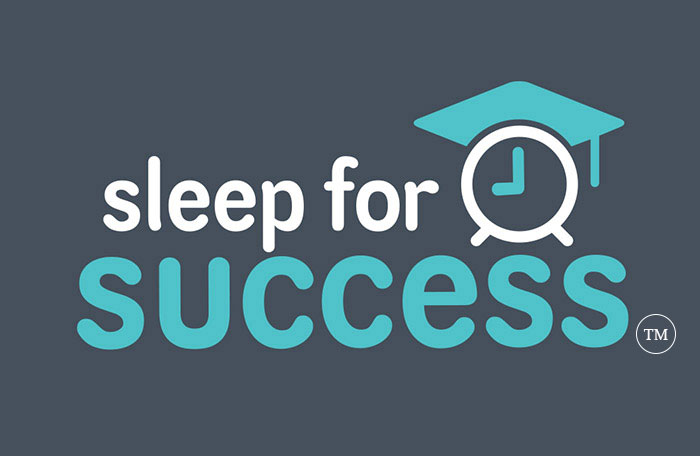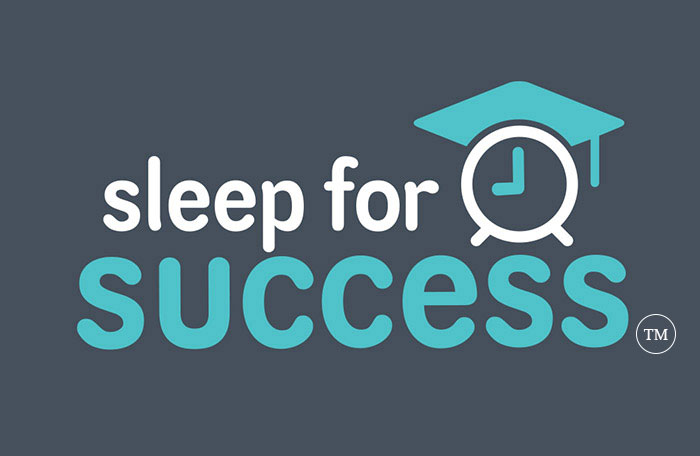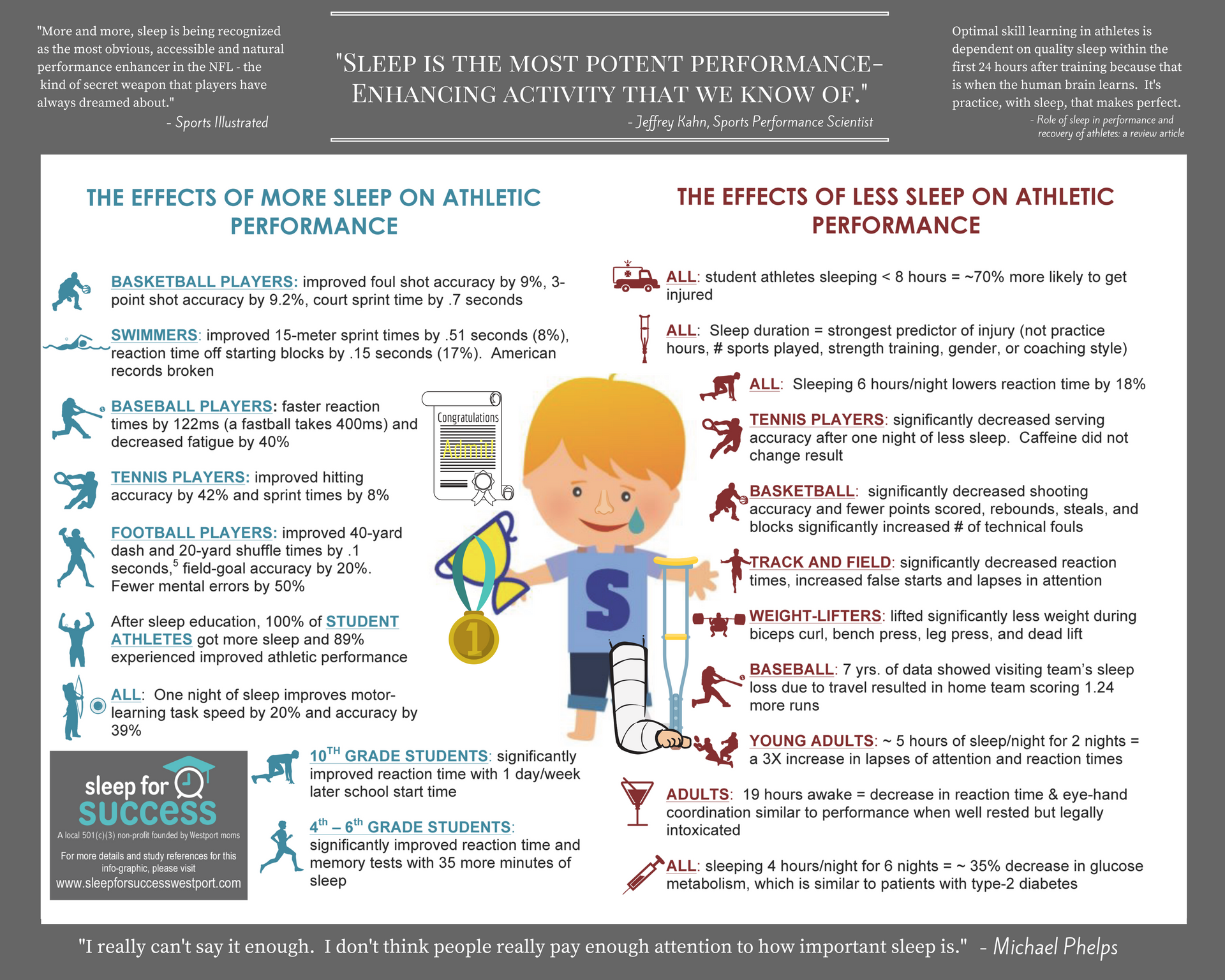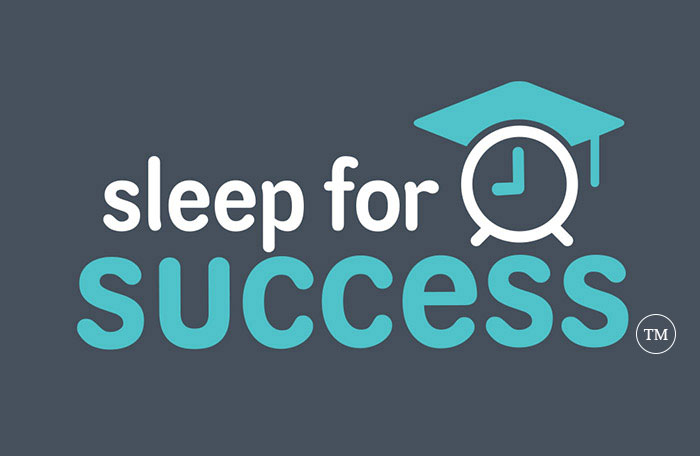Follow Us x
If we align Westport’s school schedule with our adolescents’ sleep cycle – which means starting school no earlier than 8:30 a.m. – our teens would benefit in the following ways:
(click on each benefit below for more details)
- Improved academic performance
- Improved standardized test scores
- Improved abstract thinking and verbal creativity
- Improved efficiency in completing homework
- Better sports performance
- Fewer sports-related injuries
- Decreased rates of motor vehicle crashes
- Improved mental health: decreased risk of anxiety, depression, suicidal ideation, and vulnerability to stress and better emotional regulation and positive affect
- Decreased risk-taking behaviors, including decreased use of illegal drugs, stimulant medications, alcohol, and tobacco, and better impulse control.
Improved academic performance
Adolescents need the recommended 8 to 10 hours of sleep each night in part because learning continues to take place while a person is asleep.1, 2 During sleep, the brain consolidates and practices what the student learned during the day and forms long-term memories. A sleep deficit of just 30 to 60 minutes can cause deficits in concentration, mathematical capacity, logical reasoning, complex thought, organization, and creativity.1, 2, 3, 4, 5, 6, 6A Without enough sleep, “teenagers are losing the ability not only to solidify information but to transform and restructure it, extracting inferences and insights into problems.”4
For these reasons, researchers have long suspected that later school start times would improve academic performance. Yet study results on this subject were mixed until more recently. While no research suggests that later start times cause lower grades, in some older studies the GPA improvements were not large enough to be statistically significant.3 Researchers hypothesized that these gains were not larger because their data set was problematic - grading metrics can vary by subject, teacher, and school, or change due to curriculum alterations, among other things.6, 7, 8 In addition, while top students might learn more or produce better work with later school start times, there is little room for their already high grades to reflect this improvement.7
In the past decade, however, researchers have overcome these methodological hurdles and their studies provide compelling evidence that starting school later improves learning and grades.6, 7, 10, 11, 18 There is now "an impressive, cumulating body of medical and educational research evidence consistently indicating that later start times improved educational performance."6ABased on this research, the American Academy of Pediatrics, American Medical Association, Centers for Disease Control and Prevention, and other health organizations have cited better academic performance as one of many reasons why middle and high schools should start no earlier than 8:30 a.m.6, 9, 10, 6B, 6C
By way of example, one of these more recent studies explored how later school starting times affected first-year students at the Air Force Academy.12 For purposes of sleep science, these students are in the same adolescent group as our teens. The Air Force Academy faculty taught the same courses using the same syllabi, gave the same tests, and graded these tests together. In addition, the academy required all first-years to take the same courses and had a mandatory attendance policy. The cadets that were randomly assigned to start classes after 8:00 a.m. performed better in all of their courses compared to the cadets starting prior to 8:00 a.m. The researchers concluded that, “starting the school day 50 minutes later has a significant positive effect on student achievement, which is roughly equivalent to raising teacher quality by one standard deviation.”12
Scientists have concluded the same in other studies that also used strong data sets and advanced statistical techniques. In a three-year study of over 9,000 students in eight public high schools in three states, grades in math, English, science, and social studies improved significantly with start times of 8:35 a.m. or later.13 In a seven-year study of middle school students, starting school one hour later improved grades in math and reading by 3 percentile points.14 Based on this research and many other “empirical studies find[ing] sizable gains in test scores and grades from later start times,” researchers have concluded that “a one-hour delay has the same effect as being in a class with a third fewer students or with a teacher whose performance is one standard deviation higher.”15
Survey results also suggest that later school start times improve learning. Superintendents in districts that have moved start times later, including Wilton’s superintendent, have reported in these surveys that student grades improved.16, 17And, not coincidentally, the best high school in America according to US News and World Report starts classes at 9:15 a.m.15a
In addition to schools, other organizations have prioritized sleep because it enhances the performance of their employees or members.
The Army "has proclaimed sleep a pillar of peak soldier performance."71 Accenture, JP Morgan Chase, and Uber, among other companies, provide "antiburnout programing" which "educates their employees on the importance of sleep."B And Jeff Bezos, CEO of Amazon, has said that his eight hours of sleep each night were good for his stockholders.71
Back To The Top
Improved standardized test scores
As the American Academy of Pediatrics and American Psychological Association have explained, the benefits of later school start times include higher “state assessment scores” and “college admissions test scores.”6, 10 For example, in one study a one-hour delay in school start time caused an increase of three percentile points on standardized math and reading tests.14, 19 Another study concluded that, for schools with more middle and upper-class students, a one hour difference in school start times was associated with improved standardized test scores of 3 to 7 points and an improved school rank of 14 percentile points.20, 21
Back To The Top
Improved abstract thinking and verbal creativity
Adequate sleep is especially crucial to higher cognitive functions like abstract thinking and creativity. 4 There is a good logic behind the long-standing advice that one should "sleep on a problem," because during sleep - and especially the longer period of REM sleep that occurs toward the end of the adolescent sleep cycle - teens' brains organize and consolidate memories and their ability to concentrate and problem solve the next day are improved. 4a In fact, higher cognitive functions like abstract thinking and creativity are extremely vulnerable to sleep deprivation and one of the first skills to be compromised when students don't get enough sleep.4 A sleep deficit of just 30 to 60 minutes can cause significant deficits in abstract thinking and creativity,3, 6 and even one night of poor sleep causes “impaired verbal creativity and concept formation.”22, 23 Without enough sleep, “teenagers are losing the ability not only to solidify information but to transform and restructure it, extracting inferences and insights into problems.”4Back To The Top
Improved efficiency in completing homework
Opponents of later school start times worry that students will have less time to complete homework, but studies suggest that adolescents actually complete more homework during the day with later start times due to their increased alertness and efficiency.8, 24 This makes sense given that, for adolescents, regularly getting less than 8 to 10 hours of sleep causes “decreased performance, efficiency, and output,” and “impairments in executive function, [including] working memory, organization, time management, [and] sustained effort” and “impairments in attention and memory.”6, 5 Nationwide, more than 1 in 5 students with start times before 8:30 a.m. report falling asleep while doing homework at least once a week.25
In addition to spending more time on homework and completing assignments more efficiently, students with later start times spend less time watching television.14, 26Back To The Top
Better sports performance
(1) Reaction times
Sleep deprivation significantly impairs athletes' reaction times and ability to quickly spot visual signals.39a, 29, 66 This is in part because during sleep the body replenishes neurotransmitters, which are the chemicals that relay signals within the body.39b As a result, athletes' reaction times speed up by at least 7 percent for every hour of improved sleep.101When elite collegiate swimmers increased their sleep as much as possible and Major League Baseball players slept 1.1 hours more per night for just five nights, their reaction times improved by 150 milliseconds (17%) and 122 milliseconds (13%, a fastball takes 400 milliseconds), respectively.31, 31a. On the flipside, if adolescents get a moderate amount of sleep but not the 8-10 hours they need each night, the neurotransmitter "messengers" don't work as well and reaction time can diminish by over 18%.30b And after just one night without sleep, or one week of sleeping four to five hours a night, reaction times triple.40a, 41b, 42b This is an impairment in reaction times equivalent to being legally intoxicated.40a, 41b, 42b As sports writers have pointed out, these slower reaction times result in more injuries, missed tackles, lost races, and "dunks that end up on SportsCenter" rather than "timely defensive rotations." 42a, 43b(2) Learning skills and motor development
Even elite athletes are constantly honing their motor movements and learning new strategies and skills, which is another reason why adolescents need to sleep at least 8-10 hours.37, 32 The first night following training is when the human brain learns whatever a person practiced during the day. 33, 40a, 32, 1, 2, 27 So contrary to the popular saying, it’s not practice that makes perfect but “practice, with sleep, that makes perfect”:33, 33a“Solidifying knowledge requires both REM and deep sleep. The first aspect, which happens during deep sleep, is basically a rehearsal: the brain files away the facts and practices the moves learned that day. The second part is integrating those facts and lessons into existing knowledge. This happens during REM.”40aMost REM sleep occurs in the “final quarter” of a full night of sleep32 – the time when we are currently waking up our teens to get ready for school. The result is that athletes “learn some new plays in practice, but it doesn’t become automatic, and come game time it might look as if they never practiced at all.” 32, 33, 40a And catching up on sleep even on the very next night after practice doesn’t change this result, making “quality sleep on the first night after training critical.”32,33, 40a
This is one of the many reasons that both the NCAA32 and the International Olympic Committee36 have released guides for coaches and athletes explaining the adolescent sleep cycle shift and encouraging coaches and athletes to do whatever they can to adapt daily schedules to adolescents’ sleep cycle, rather than trying to adapt student athletes’ sleep cycles to current schedules. As the International Olympic Committee explained, there’s “a prevalence of insufficient sleep among adolescents, often prompted by early school-start times” and “interventions (tailored training and even perhaps schooling schedules) to support adequate sleep in youth athletes should be implemented.”36
(3) Muscle recovery and growth
Sleep is also essential to muscle recovery and growth, tissue repair, and ordinary developmental growth in student athletes.41, 30b, 30e, 32, 32a, 33, 40a Over 95% of (a) natural human growth hormone and (b) sexual maturation hormones are released during sleep.41, 30e, 32, 33Human growth hormone is responsible for cell growth and regeneration – including muscle growth – and for regulating body composition.41, 30b, 32, 33 Testosterone, a sexual maturation hormone, has important beneficial effects on muscle mass, strength, vigor, and well-being in both male and female athletes.33, 40aWhen an athlete does not get enough sleep, the levels of both types of hormones drop dramatically.33, 40a By way of example, after just one week of sleeping five hours or less each night, a man’s testosterone level falls as if he’s aged 11 years.43, 40a And growth hormone drops so significantly with sleep loss that not only is there a negative effect on tissue healing and recovery, but research indicates that without enough sleep, a day’s training causes muscular atrophy, thereby making an athlete weaker rather than stronger.33, 44, 100(4) Judgement and mood
For beginning and professional athletes alike, getting more sleep reduces errors and improves judgment.32, 33, 40a, 40b, 30b, 43 For example, by sleeping more collegiate football players cut mental errors in half,30b, 101 while professional basketball players who slept less the night before a game committed significantly more technical fouls.40a, 44 Amongst younger athletes, sleeping 5 hours a night for only two nights has been shown to cause a 3x increase in lapses of attention45 – even if the athletes are able to catch up on sleep on the weekends.43Why? Sleep loss causes a reduction in brain connections in the prefrontal cortex, which is responsible for judgment, and the amygdala, which is responsible for emotion.40a Even minimal sleep loss lowers the threshold for containing anger because the amygdala can become 60 percent more reactive.40b And, as the NCAA has explained, athletes need their prefrontal cortex functioning optimally because sports involve decision-making, and an athlete’s overall performance will suffer from errors caused by less sleep:“Decision-making … is crucial on the field. In addition, as explained above, sleep loss also significantly decreases testosterone production which, for male and female athletes alike, impacts decision-making abilities in such a way that “there is no way a player is performing at his [or her] peak when testosterone is depleted.”40aSleep loss impairs your ability to make creative thoughtful decisions. Worse, sleep loss even impairs individuals’ ability to be aware of their own impairments. This leads to overconfidence and a lack of insight into poor decisions.”32Sleep reduction also causes depression, poor moods, decreases in “vigor,” and, obviously, tired players.45, 46, 47 These are not the best mental states for any teen engaging in sports or even physical activity in general.
(5) Mental Toughness
Although some athletes seem to be naturally more resilient, mental toughness is a skill that that's improved through practice and sleep:“The sneaky reality of mental toughness is buried in how well we recharge and recover. It's looking after ourselves physically and mentally so that we can "top up" our toughness for moments where we need it most.”43eTeenagers that sleep more have higher levels of mental toughness, in part, because sleep deprivation increases the perceived effort of a workout or competition, worsens mood as explained above, and causes an athlete's ability to stay focused to plummet.43e, 43g, 102
****************
In sum and for the numerous reasons listed above, we now know that sleep may have “the most potential for positive impact on athletic performance”30 – more than training modifications, coaching, nutrition, conditioning, etc. Even Michael Phelps, the most decorated Olympian in history, sleeps 11-12 hours a day and has said that training and sleep were equally important when it came to winning his 28 medals:65
"I really can't say it enough. I don't think people really pay enough attention to how important sleep is.65And we also know that sleep deprivation causes athletes perform significantly worse and jeopardizes their safety, as illustrated in the info-graphic below. Simply put, sports scientists recommend that athletes and adolescent athletes in particular avoid early morning schedules -both in training and otherwise - to get more sleep.43d, 103 It is a unequivocal, scientific fact that student athletes cannot get the sleep they need each night to succeed to their full potential or stay safe unless middle and high school starts at 8:30 a.m. or later.66, 67 And it is an unequivocal, scientific fact that when schools have switched to later start times, students get more sleep.67 In fact, students have had faster reaction times even when only one school day per week started an hour later.36 The extra hour of sleep that these teenagers logged every week had a significant impact on their performance.36 And many athletic directors at school districts that changed to later start times report that their teams performed better following the change and that general participation increased in their sports programs.37, 17 So as parents an coaches, it is time for us to read the science - like coaches and players in the NCAA and professional leagues - and stop using disruption of sports as an reason NOT to have later school start times. If we don't, much of our student athletes' efforts at practice will continue to go to waste.
Fewer sports-related injuries
How Later Middle and High School Start Times Benefit our Student Athletes
presented by Dr. Karen SuttonDecreased rates of motor vehicle crashes
Motor vehicle crashes are the leading cause of death for U.S. adolescents.44, 45, 46, 47 An average of six teenagers die every day from car accidents, which account for 35% of all adolescent deaths.47, 6C Teen drivers are also dangerous to others – although 15 to 20 year-old-drivers make up only 6% of the population, their auto accidents cause 19% of all fatalities in the United States.48 Sleep deprivation causes a significant number of these fatal accidents and, more generally, over 50,000 teens crash their cars after falling asleep at the wheel every year.45 Fifteen percent of high school drivers report driving drowsy at least once a week, and 9% have fallen asleep at the wheel in the past year.49 As things stand, our teen drivers are accidents waiting to happen.
Research has shown that with later school start times teens get in significantly fewer motor vehicle accidents. In one study of over 9,000 students in three states, the number of car crashes for high school drivers declined by 70% when schools shifted start times from 7:35 a.m. to 8:55 a.m.13 In another county that changed school start times from 7:30 a.m. to 8:30 a.m., the countywide accident rate declined by 16.5%, which was especially significant given that the accident rate in neighboring counties increased by 7.8% that year.50 Another study examined accident rates in neighboring counties in Virginia, which had similar populations and experienced the same weather. In the county where high school started at 7:25 a.m., student drivers were 4.5 times more likely to get in car accidents than the county where school started at 8:40 a.m., and these accidents peaked during school commute time.48 Moving high school start times later saves lives that would otherwise be lost behind the wheel. 10, 37Back To The Top
Improved mental health: decreased risk of anxiety, depression, suicide, and vulnerability to stress and better emotional regulation and positive affect
Adolescents are extremely vulnerable to mental health problems and suicide. One in five children ages 13 to 18 will have a serious mental illness, and most of these illnesses begin before the end of high school. 51a In fact, the incidence of depression rises up to 500% after puberty, and depression in teens is a major risk factor for suicide.51a
Along with car accidents, suicide is one of the “biggest killers of teenagers, and both of these things are highly impacted upon by chronic sleep loss.”51 Sleep loss impacts the "emotion centers" of the brain, and amplifies any negative emotional response to a situation.81, 82, 83 It also causes adolescents be more impulsive and perceive less negative consequences from their actions. 81, 82, 83 As a result, adolescents that don’t get 8 to 10 hours of sleep each night have poorer mental health than their well-rested peers; they are more likely to have low-self esteem, mood disorders, depression, trouble regulating their emotions, and thoughts of suicide.7, 13, 49, 52, 53, 54, 55 In fact, one recent study of over 27,000 middle and high school students found that, for each hour of lost sleep, there was a 38% increase in feeling sad and hopeless, a 42% increase in considering suicide, and a 58% increase in suicidal attempts.84 These results reinforced the findings of earlier studies that teens that sleep only 1 hour less per night than their individual 8 - 10 hour sleep requirement are much more likely to attempt suicide.91, 92
Sleep-deprived people are also generally less empathetic and more likely to be cranky and irritable.49, 56
Research shows that moving school start times later improves all of these mental health-related factors.6C In one study of over 12,000 secondary school students, adolescents whose start times changed to 8:40 a.m. or later reported significantly less depression.8 In another study, high school students obtained more sleep and reported feeling less depressed after their school start time was changed by just 25 minutes from 8:00 a.m. to 8:25 a.m.57 Similarly, when another county changed high school start times from 8:00 a.m. to 8:30 a.m., average student sleep duration increased by 45 minutes and students rated themselves as feeling significantly happier, less stressed, and less depressed.”58
MYTHBUSTERS - My teen will not commit suicide because he or she is not depressed
presented by Rafael Pelayo, MD, Clinical Professor, Psychiatry and Behavioral Sciences, Stanford Center for Sleep Sciences and MedicineDecreased risk-taking behaviors, including decreased use of illegal drugs, stimulant medications, alcohol, and tobacco, and better impulse control.
Adolescents are generally more prone to risk-taking behavior than adults because their brains are only 80% mature.59 The frontal lobes, which are involved in decision-making and inhibitory control and are essential to the ability to assess danger, are still developing and connecting to the other parts of the brain.59, 60 When adolescents get less than 8 hours of sleep, both the growth and the functioning of the frontal region is dampened which, in turn, makes teens more likely to engage in risk-taking behavior.59, 60 In addition to permanently affecting the development of the frontal region, sleep loss also makes adolescents immediately more impulsive and less able to perceive negative consequences from their actions. 81, 82, 83
Numerous studies demonstrate that teens take part in riskier behavior when sleep deprived. For example, the CDC analyzed data on 50,370 high school students and found that teens sleeping an average of 7 hours or less on school nights are more likely to drink and drive, ride with drivers that had been drinking, text while driving, and not use seatbelts. Adolescents that have slept less than the recommended 8 to 10 hours each night are 55% more likely to have used alcohol in the past month.94 In other studies, researchers concluded that high school students who slept less than 8 hours each night are more likely to use cigarettes, alcohol, marijuana, and other drugs, and are more likely to engage in sexual activity and even bullying. 13, 62, 91, 25a
And contrary to what some parents might think, getting almost enough sleep is not good enough when it comes to our adolescents' safety. New research has shown that teens are more likely to engage in risky behavior that requires at least some effort - as opposed to staying put when a fire alarm sounds or not buckling a seat belt - when they are moderately tired rather than severely sleep-deprived. As researchers have explained, sleep loss makes us prone to risky behavior because it impairs mental processes involved in self-control. But, when we're really exhausted, we lack the oomph to follow through on shortsighted impulses. A moderately sleep person, on the other hand, has both the blunted self-control and energy needed to take risks.92, 93
The Impact of School Start Times on Mental Health and Risky Behavior
presented by Wendy Troxel, PhD, Senior Behavioral and Social Scientist, RAND CorporationBack To The Top




